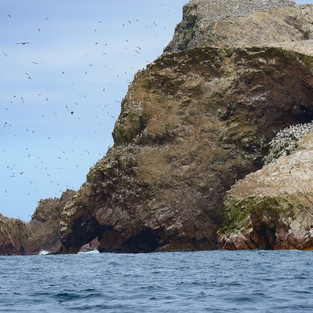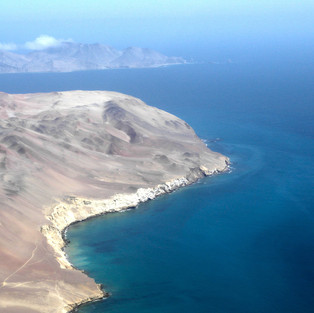The Dirección General de Capitanías y Guardacostas (DICAPI) and the Instituto del Mar del Perú (IMARPE) has jointly organized a workshop on 14 July 2020 to kick start Peru’s participation in the GloFouling Partnerships project.

Peru's maritime geography includes mangroves, wetlands, macroalgae meadows, rocky coasts, soft bottoms and beaches of great biological diversity with a significant degree of endemism. These ecosystems have supported or facilitated port activities, tourism, aquaculture and fishing. At present, Peru protects almost all of its most important guano islands and peninsulas, which together with the national marine reserves of Paracas and San Fernando, and the Illescas Reserved Zone account for about 0.48% of its maritime area.
During the meeting Captain Jesús Menacho Piérola, Director of International Affairs and IMO Affairs (GloFouling national focal point). highlighted the need to involve all the relevant stakeholders to contribute to the joint efforts of Peru in managing biofouling and tackling the issue of invasive aquatic species (IAS).

With many travel and meeting restrictions, due to the current circumstances worldwide caused by COVID-19, Peru’s first National meeting and Task Force meeting in March 2020 was postponed. However, understanding the urgent need to participate in the GloFouling Partnerships project to help preserve its marine ecosystems, Peru adapted swiftly and organized its National meeting virtually instead.
This meeting also kick started the first meeting of the National Task Force composed of the key stakeholders in the biofouling and IAS related fields. During the meeting, the group discussed the challenges and opportunities related to the development of a national strategy and action plan to implement the IMO Biofouling Guidelines. The next steps on how to develop a national strategy, which will be used to tackle the issue of invasive aquatic species being introduced through biofouling in Peru, were also discussed and agreed upon.
The importance of Peru’s participation in the GloFouling Partnerships Project was reiterated during Dr. Patricia Carbajal's (Biologist, IMARPE) presentation, who highlighted the current impact of IAS in Peru marine ecosystems. Even though there is a lack of species inventories in ports and bays, quite a number of invasive aquatic species have been detected, such as Dipolydora giardia and Ciona robusta, which can lead to significant losses in the abalone and scalop aquaculture.
Over thirty participants connected to the meeting, representing all key maritime sectors: Regional Technical Coordinator of the Comisión Permanente del Pacífico Sur (CPPS); the Peruvian Navy; the port authority of Peru and shipyard representatives; aquaculture and environmental authorities; academia; classification society; and the private sector.
Paracas National Reserve
For more information contact glofouling@imo.org.



























Comentarios